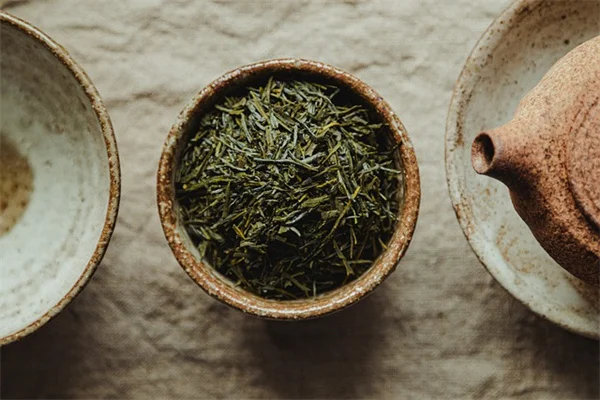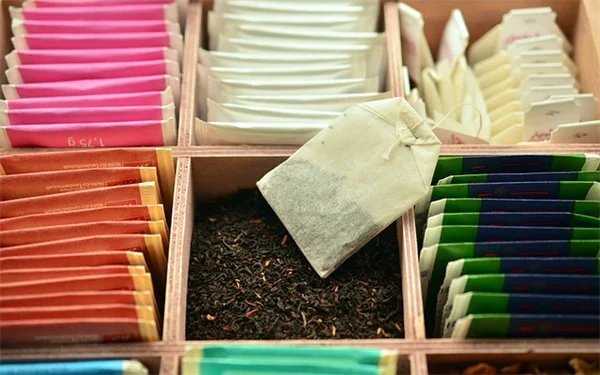Advertisement
Can black coffee really help prevent type 2 diabetes? The answer is yes - and the science behind it might surprise you! New research shows that drinking 3-5 cups of black coffee daily (regular or decaf) could slash your diabetes risk by 20-30%. Here's why: those humble coffee beans contain powerful polyphenols that improve blood sugar control, reduce inflammation, and boost insulin sensitivity.I've been following this research closely, and what excites me most is how accessible this prevention strategy is. You don't need expensive supplements - just plain black coffee! But before you start chugging, let me share some important details about how to maximize these benefits while avoiding common coffee mistakes that could actually work against you.
E.g. :Teen Marijuana Use: 5 Shocking Risks Every Parent Should Know
- 1、Your Morning Cup Might Be a Diabetes Fighter
- 2、But Wait - How Much Coffee Is Too Much?
- 3、Making Your Coffee Work Harder For You
- 4、The Bigger Picture: Understanding Type 2 Diabetes
- 5、Beyond Coffee: Building a Diabetes-Proof Lifestyle
- 6、Putting It All Together
- 7、The Hidden World of Coffee's Health Benefits
- 8、Coffee Culture Around the World
- 9、Debunking Common Coffee Myths
- 10、Coffee Preparation Methods Compared
- 11、Coffee and Mental Performance
- 12、FAQs
Your Morning Cup Might Be a Diabetes Fighter
The Science Behind Coffee's Benefits
Guess what? Your daily coffee habit might be doing more than just waking you up! Researchers from Korea found that drinking 3-5 cups of black coffee daily could slash your type 2 diabetes risk by 20-30%. And here's the kicker - it works whether you choose regular or decaf!
The magic lies in polyphenols, those natural compounds in coffee that act like little health warriors in your body. These compounds, especially hydroxycinnamic acids, work their magic by:improving blood sugar control,reducing inflammation, andboosting your body's insulin sensitivity.
What Exactly Are These Coffee Compounds?
Think of your coffee bean as a tiny treasure chest. It contains about 200 different compounds, many with potential health benefits. Dr. Li from UCLA puts it perfectly: "We're basically getting health bonuses from what the coffee plant naturally provides."
Here's a fun fact: Some of these beneficial compounds are also found in spices you might use for cooking. So whether you're sipping coffee or seasoning your dinner, you're getting some similar health perks!
| Coffee Compound | Health Benefit |
|---|---|
| Chlorogenic acid | Blood sugar regulation |
| Hydroxycinnamic acids | Anti-inflammatory effects |
| Antioxidants | Cellular protection |
But Wait - How Much Coffee Is Too Much?
 Photos provided by pixabay
Photos provided by pixabay
Finding Your Coffee Sweet Spot
Now, before you start chugging coffee like water, let's talk about moderation. While 3-5 cups shows benefits, we're all different in how we handle caffeine. Some people might feel jittery after just two cups!
Dr. Tan from Stanford warns: "That much caffeine could lead to headaches, nausea, or trouble sleeping for some folks." But here's the good news - if caffeine bothers you, decaf works just as well for diabetes prevention!
Who Should Be Careful With Coffee?
If you're pregnant, have heart conditions, or are sensitive to caffeine, you'll want to watch your intake. But remember - you can still get those polyphenol benefits from decaf or even certain teas and spices!
Ever wonder why some people can drink coffee right before bed while others can't sleep if they have a cup after noon? It's all about how quickly your body processes caffeine. Genetic testing can actually tell you which type you are!
Making Your Coffee Work Harder For You
The Right Way to Drink Coffee
Here's where many of us go wrong - we take this potentially healthy drink and turn it into a dessert! Adding sugar and cream can cancel out many of coffee's benefits. Dr. Li suggests thinking of coffee like a health supplement - best taken plain.
Picture this: You're at a coffee shop deciding between a black coffee and a caramel frappuccino with whipped cream. That "coffee" drink might contain more sugar than a candy bar! Which one do you think your pancreas would thank you for choosing?
 Photos provided by pixabay
Photos provided by pixabay
Finding Your Coffee Sweet Spot
Instead of reaching for sugary pastries, try these healthier options with your coffee:- A handful of nuts- Greek yogurt with berries- Whole grain toast with avocado
Remember, coffee works best when it replaces sugary drinks in your diet. Switching from soda to black coffee? That's a double win for your health!
The Bigger Picture: Understanding Type 2 Diabetes
Why Should We Care About Prevention?
With nearly 39 million Americans living with diabetes (that's about 1 in 7 adults!), prevention matters more than ever. The scary part? Many people don't even know they're at risk until symptoms appear.
Common warning signs include:- Feeling thirsty all the time- Needing to pee frequently- Constant fatigue- Blurry vision
Who's Most at Risk?
While anyone can develop type 2 diabetes, certain factors increase your chances:- Family history of diabetes- Carrying extra weight (especially around the waist)- Being physically inactive- Eating lots of processed foods
But here's some hope - even small changes can make a big difference. Adding that daily coffee habit (without sugar!) could be one simple step toward better health.
Beyond Coffee: Building a Diabetes-Proof Lifestyle
 Photos provided by pixabay
Photos provided by pixabay
Finding Your Coffee Sweet Spot
While coffee helps, it's not a magic bullet. Regular exercise remains one of the most powerful tools against diabetes. You don't need to run marathons - even brisk walking for 30 minutes most days can significantly lower your risk.
Think of it this way: Coffee improves your insulin sensitivity from the inside, while exercise does it from the outside. Together, they're a dynamic duo fighting to keep your blood sugar in check!
Sleep and Stress Matter Too
Ever notice how you crave sweets when you're tired or stressed? There's a biological reason for that. Poor sleep and chronic stress can actually worsen insulin resistance. So while you're enjoying your morning coffee, remember that good sleep habits complete the picture.
Here's a pro tip: If you're stressed, try mindful coffee drinking - actually savor the aroma and taste rather than gulping it down while checking emails. It's a small way to reduce stress while getting those polyphenol benefits!
Putting It All Together
Your Personal Diabetes Prevention Plan
Let's make this practical. Here's what your daily routine could look like:1. Start with black coffee (or tea if you prefer)2. Take a 10-minute walk after meals3. Choose whole foods over processed snacks4. Get 7-8 hours of quality sleep
Notice how coffee fits into a bigger pattern of healthy choices? That's the real secret - no single food or drink can do it all, but together, these habits create powerful protection.
The Bottom Line on Coffee and Health
While more research is always helpful, the current evidence strongly suggests that moderate coffee consumption can be part of a diabetes prevention strategy. The key is keeping it simple - skip the sugar, watch your caffeine tolerance, and pair it with other healthy habits.
So tomorrow morning when you take that first sip, remember - you're not just waking up, you're potentially doing something good for your long-term health. Now that's what I call a smart way to start the day!
The Hidden World of Coffee's Health Benefits
Coffee's Impact on Gut Health
Did you know your morning brew might be feeding your gut bacteria? Recent studies show coffee's polyphenols act as prebiotics, nourishing the good bacteria in your digestive system. A healthy gut microbiome plays a crucial role in everything from immunity to mental health!
Here's something fascinating: The fermentation of coffee compounds by gut bacteria produces short-chain fatty acids that help regulate blood sugar. This means your coffee isn't just working directly on your metabolism - it's also creating an environment where your gut can better support your overall health. Pretty cool, right?
Coffee vs. Other Popular Beverages
Let's put coffee head-to-head with other drinks you might choose in the morning. You'll be surprised how it stacks up!
| Beverage | Antioxidant Level | Impact on Blood Sugar |
|---|---|---|
| Black Coffee | High | Positive |
| Orange Juice | Medium | Negative (spikes sugar) |
| Green Tea | High | Neutral |
| Soda | None | Very Negative |
Now here's a question that might surprise you: Why doesn't coffee cause the same blood sugar spikes as other bitter beverages? The answer lies in its unique combination of compounds that actually help your body process glucose more efficiently, unlike many other drinks that just dump sugar into your system.
Coffee Culture Around the World
How Different Countries Enjoy Their Brew
While we're talking about coffee's health benefits, let's take a quick world tour of coffee traditions. In Ethiopia, where coffee originated, they have elaborate coffee ceremonies that can last hours. In Italy, espresso is a quick ritual enjoyed standing at a bar. And in Vietnam, they sweeten strong coffee with condensed milk - though we might want to skip that version for diabetes prevention!
What's interesting is that despite these cultural differences, the health benefits seem consistent across preparation methods. Whether you're drinking Turkish coffee with its fine grounds or Scandinavian-style light roast, you're still getting those valuable polyphenols.
The Social Side of Coffee
Here's something we often overlook - coffee's benefits might extend beyond just the physical. That morning coffee break with coworkers or weekend coffee date with friends? Those social connections are scientifically proven to boost mental health and even longevity.
Think about it: When was the last time you had a meaningful conversation over a cup of coffee? Those moments of connection might be just as important for your wellbeing as the antioxidants in your mug. So next time you're sipping coffee with someone, remember you're doing double duty for your health!
Debunking Common Coffee Myths
Does Coffee Really Dehydrate You?
You've probably heard that coffee dehydrates you because it's a diuretic. But here's the truth - while caffeine does have mild diuretic effects, the water in coffee more than makes up for it. Unless you're drinking espresso shots all day without any water, your coffee habit isn't drying you out!
In fact, coffee counts toward your daily fluid intake. The key is moderation - if you're drinking 10 cups a day, yeah, you might want to balance that with some water. But 3-5 cups? Your hydration levels will be just fine.
Is Coffee Bad for Your Heart?
This one keeps popping up, so let's set the record straight. For most people, moderate coffee consumption doesn't harm heart health and might actually help it. The antioxidants in coffee can support blood vessel function and reduce inflammation in the cardiovascular system.
But here's an important exception: If you have a specific heart condition or caffeine sensitivity, you should definitely talk to your doctor. Otherwise, that daily cup (or three) is more likely helping your ticker than hurting it!
Coffee Preparation Methods Compared
Does How You Brew Affect Health Benefits?
You might wonder if your French press delivers the same benefits as drip coffee. Good news - most brewing methods preserve coffee's healthy compounds, though some differences exist. Cold brew, for example, has slightly lower acidity but similar antioxidant levels to hot brewed coffee.
Here's a fun experiment to try: Compare how you feel after different brewing methods. Some people find they tolerate one type better than others, even if the health benefits are similar. Your perfect cup is about both health and enjoyment!
The Filter Factor
Here's something most coffee drinkers don't think about - paper filters actually trap some compounds that can raise cholesterol. If you're concerned about cholesterol levels, filtered coffee might be a better choice than French press or espresso. It's a small detail that could make a difference in your long-term health!
Now I've got to ask: Who knew your coffee filter could be such a health hero? It's amazing how these little choices in our daily routines can add up to significant health impacts over time.
Coffee and Mental Performance
The Brain-Boosting Effects
While we're focusing on diabetes prevention, let's not forget coffee's famous brain benefits. The caffeine in coffee blocks adenosine receptors, which helps you feel more alert. But there's more - coffee also contains compounds that may support long-term brain health and potentially reduce risk of neurodegenerative diseases.
Picture this: You're tackling a tough project at work with your coffee by your side. Not only is the caffeine helping you focus now, but those polyphenols might be helping protect your brain for years to come. Talk about a smart drink!
Coffee and Mood
Ever notice how a good cup of coffee can lift your spirits? There's science behind that too! Coffee stimulates dopamine production, which helps regulate mood. Some studies even suggest regular coffee drinkers have lower rates of depression.
Of course, we're not saying coffee can replace professional help for mental health issues. But as part of a healthy lifestyle, that morning ritual might be doing more for your mood than you realized. So go ahead and savor that cup - your brain will thank you!
E.g. :Coffee and Lower Risk of Type 2 Diabetes: Arguments for a Causal ...
FAQs
Q: How exactly does black coffee lower diabetes risk?
A: Black coffee works its magic through special compounds called polyphenols, particularly hydroxycinnamic acids. These natural substances help your body in several ways: they improve how your cells respond to insulin (that's insulin sensitivity), reduce inflammation that can lead to diabetes, and help your liver process sugar more efficiently. What's really cool? The benefits come from the coffee itself, not just the caffeine - that's why decaf works too! We've seen in studies that regular coffee drinkers show better blood sugar control markers overall. Just remember - these benefits apply to black coffee, not the sugar-loaded versions you might get at coffee shops.
Q: Is there an optimal amount of coffee for diabetes prevention?
A: The sweet spot appears to be 3-5 cups daily, but here's what we need to consider: this amount shows the strongest benefits in research, but everyone's caffeine tolerance differs. If you're new to coffee, start with 1-2 cups and work up. I always tell my clients to listen to their bodies - if you're feeling jittery or having trouble sleeping, that's your cue to cut back. The great news? You can mix regular and decaf to hit your target without overdoing caffeine. And if you're sensitive to caffeine, you can get the same diabetes protection from decaf alone!
Q: What's the healthiest way to drink coffee for diabetes prevention?
A: Keep it simple - black is best! Adding sugar or cream can cancel out many of coffee's benefits. I know it might taste bitter at first if you're used to sweeteners, but your taste buds adjust surprisingly fast. Try this trick: gradually reduce the amount of sugar you add each week. Within a month, you'll likely enjoy the natural flavor. Also, watch what you eat with your coffee - pairing it with sugary pastries defeats the purpose. Instead, try nuts or whole grain toast. Remember, coffee works best as part of an overall healthy diet.
Q: Who should be careful with coffee consumption?
A: While most people can enjoy coffee safely, some groups should be cautious. If you're pregnant, have heart conditions, anxiety disorders, or are caffeine-sensitive, you'll want to monitor your intake carefully. Here's what we recommend: start with small amounts (like half a cup) and see how you feel. Children and teenagers should generally avoid regular coffee. Also, if you have existing diabetes, check with your doctor - while coffee may help prevention, it can sometimes affect blood sugar levels in people who already have the condition. When in doubt, decaf is a great alternative.
Q: Can I get these benefits from tea or other drinks?
A: Absolutely! While coffee has been studied most extensively, other beverages contain similar beneficial compounds. Green tea, for example, contains polyphenols that may also help with blood sugar control. Herbal teas like chamomile or hibiscus offer different health benefits. The key is choosing unsweetened versions. What we're really looking at here is replacing sugary drinks with healthier options. Coffee stands out because of the research backing its effects, but building variety into your routine with different healthy beverages can provide a broader range of nutrients.







